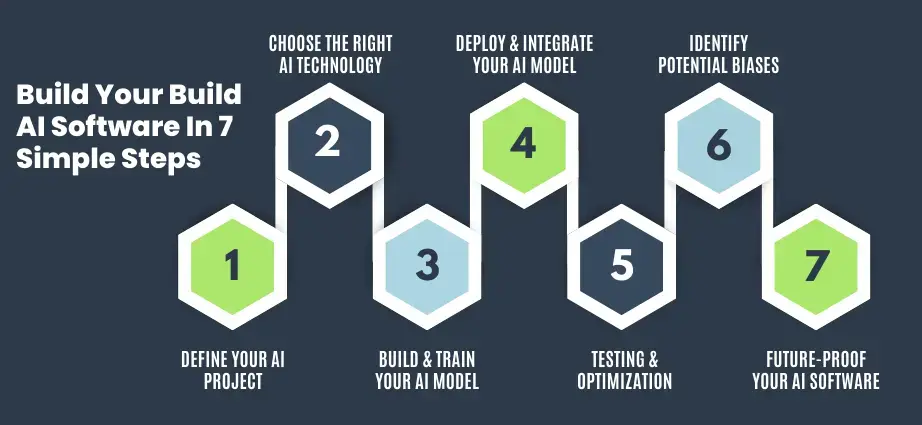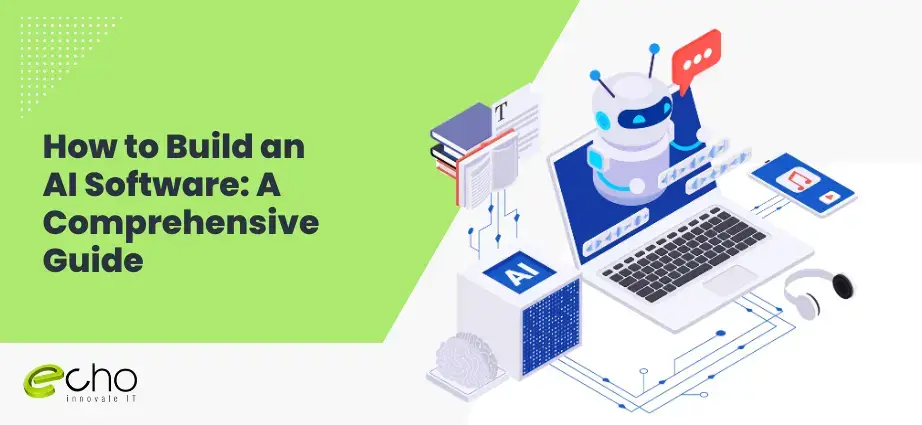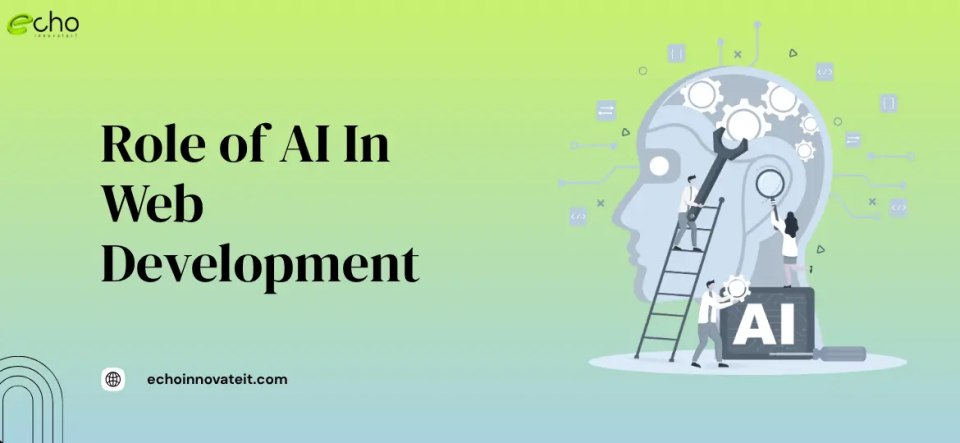AI development services and artificial intelligence software creation have skyrocketed in popularity over the past decade, driven by advancements in machine learning algorithms and the integration of cloud computing. These breakthroughs are now enabling developers to build powerful artificial intelligence (AI) programs that achieve impressive feats across industries. From AI-powered creative tools to advanced conversational AI systems, new innovations are constantly stretching the limits of what these autonomous systems can accomplish.
At its core, AI is a vast field of computer science focused on developing systems that can perform tasks typically requiring human intelligence, such as decision-making, language translation, speech recognition, and visual perception. Creating an AI program involves a step-by-step approach, from defining objectives to deploying machine learning models.
One fundamental element of AI development is machine learning (ML), where algorithms are designed to learn from data rather than relying on explicit programming. Within ML, deep learning further enhances capabilities by using neural networks with multiple layers to interpret complex patterns in large datasets. AI creation software often includes tools for designing these neural networks and optimizing models.
Another key component is natural language processing (NLP) and natural language generation (NLG), which enable AI systems to understand and produce human language. These technologies power chatbots, virtual assistants, and other conversational AI tools, making them crucial for companies interested in AI program development.
Just as the printing press and personal computers transformed society, AI is now redefining the global business landscape. Today, AI software development is critical for organizations aiming to harness AI’s potential. With access to AI consulting services and skilled AI developers, businesses can successfully develop custom AI applications that bring value through automation, data-driven insights, and smarter decision-making capabilities. AI’s ability to process massive datasets, identify patterns, and draw intelligent conclusions is reshaping industries—from self-driving cars to digital assistants—creating an era of rapid transformation.
AI software development is a complicated process that involves a thorough understanding of many areas, including computer science, mathematics, and statistics. It consists of interconnected processes, each critical to creating a functional and practical AI system. AI’s applications are numerous and diverse, spanning healthcare, finance, and transportation domains. AI-powered chatbots that deliver quick solutions to consumer inquiries increase customer satisfaction. Beyond these instances, AI is transforming education, agriculture, manufacturing, and entertainment.
AI is opening up new opportunities and driving innovation across industries by automating repetitive processes, evaluating complex data, and making informed judgments. Today’s blog will examine AI’s capabilities and how organizations might benefit from them. We’ll also delve deeper into the process and total cost of developing an AI app, providing a complete AI development guide. So let’s get started!
Understanding AI Software: Types, Applications, and Development
What is AI Software?
AI software refers to applications that leverage artificial intelligence to automate tasks, analyze data, and enhance decision-making. From AI detection software and AI trading software to AI accounting software and personal AI voice software, these tools are transforming industries. Businesses and individuals use AI writing software, AI editing software, and AI and software testing solutions to streamline operations and improve efficiency.
Types of AI Technologies
- Artificial Narrow Intelligence (ANI): The most common AI, designed for specific tasks like AI-powered chatbots, AI software development services, and AI detection software.
- Artificial General Intelligence (AGI): A developing AI software concept aimed at performing multiple cognitive tasks, much like a human.
- Artificial Superintelligence (ASI): A theoretical AI that surpasses human intelligence, potentially reshaping industries like AI software companies and AI trading software.
Popular AI Software Applications
- AI Writing Software: Automates content generation, improving productivity.
- AI Trading Software: Analyzes market trends to optimize financial strategies.
- AI Accounting Software: Enhances bookkeeping accuracy and financial management.
- AI Editing Software: Improves image, video, and document quality.
- Personal AI Voice Software: Powers virtual assistants and voice-based automation.
Developing AI Software: Steps and Best Practices
- Define Objectives: Identify business needs for AI software development.
- Data Collection: Gather and preprocess relevant datasets for AI training.
- Model Selection: Choose machine learning algorithms suited for AI software.
- Testing and Deployment: AI and software testing ensures accuracy before launch.
- Continuous Improvement: Update AI software to enhance performance and security.
Benefits of Developing AI Software
AI software has numerous advantages for both enterprises and consumers. Here are several significant advantages:
Enhanced efficiency and productivity
AI may automate monotonous and time-consuming processes, allowing human resources to concentrate on more critical activities. AI algorithms can evaluate massive volumes of data and deliver valuable insights and recommendations, resulting in better decision-making. Artificial intelligence may significantly increase productivity by streamlining processes and optimizing workflows.
Improved customer experience
AI may assess user behavior and preferences to deliver individualized recommendations, increasing customer happiness. AI-powered chatbot customer service may respond to consumer requests instantly, enhancing customer service and reducing wait times. AI can predict equipment faults, reducing downtime and increasing customer happiness.
Competitive advantage
AI may boost innovation by allowing firms to create new products and services that satisfy changing client demands. AI can help organizations save money and increase profits by automating operations and streamlining processes. AI can help firms gain a competitive advantage by allowing them to provide improved products and services to customers.
Data-Driven Insights
AI can uncover trends and patterns in data that humans may find difficult to recognize. It can also predict future outcomes using historical data, allowing firms to make proactive decisions and providing useful insights for strategic decision-making.
Risk Reduction
Artificial intelligence can detect fraudulent activity by identifying anomalies in data patterns. AI can be used to track quality control procedures and detect flaws.
AI can identify risks and vulnerabilities, allowing firms to mitigate possible threats.
Why Java Is an Ideal Choice for AI Development
Java is a strong choice for developing AI and machine learning applications, offering essential features that make it ideal for creating powerful artificial intelligence computer programs. In the rapidly expanding field of AI, which includes building your own AI, understanding how to create an AI program, and utilizing AI creation software, Java provides several advantages that streamline artificial intelligence programming.
Machine learning, a fundamental aspect of AI, enables computers to analyze data and improve over time, a capability now integral to industries like finance, healthcare, and e-commerce. Java’s versatility makes it a compelling choice for implementing machine learning and AI models, whether you’re developing a simple AI tool or a complex artificial intelligence program.
Key benefits of using Java for AI development include:
- Ability to handle complex tasks: Java’s object-oriented nature allows developers to model intricate real-world problems and solutions intuitively, making it easier to build and manage sophisticated AI systems.
- Security: Java offers advanced security features, including sandboxing, access control, and code signing, which are essential for developing AI applications that manage sensitive or confidential data.
- Maintainability: Java’s well-documented syntax and structure simplify code maintenance and upgrades, which is valuable in the evolving landscape of AI programming.
- Automatic garbage collection: Java’s built-in garbage collection helps manage memory effectively, which is particularly useful in large-scale AI projects where efficient resource handling is crucial.
- Platform independence: Java’s portability ensures that AI applications run seamlessly across different operating systems, enhancing scalability and performance on multiple devices and platforms.
For developers interested in artificial intelligence programming with Python as well as Java, combining both languages can be highly effective. Python’s extensive AI libraries complement Java’s robust performance and portability, making them a powerful pair for developing a comprehensive AI system.
Moreover, Java’s features simplify coding algorithms, visualizing data, debugging, and creating interactive user interfaces—all crucial aspects of building high-quality AI tools. Whether you’re learning how to make an AI program or planning how to implement AI into Java, Java provides a versatile and secure foundation for AI projects that demand both scalability and cross-platform compatibility.
AI And Its Application In Several Industries
Artificial intelligence (AI) is rapidly disrupting several industries, changing how organizations run and engage with customers. Here are some important uses of AI across many sectors:
Healthcare
- Diagnosis and treatment: AI-powered algorithms can scan medical images, discover diseases early, and help with diagnosis.
- Drug discovery: AI can accelerate drug discovery by simulating molecular interactions and predicting potential drug candidates.
- Personalized medicine: Artificial intelligence can personalize treatment strategies to specific patients based on their genetic makeup and medical history.
Finance
- Fraud detection: Artificial intelligence algorithms can detect fraudulent transactions by studying data trends.
- Algorithmic trading: AI-powered systems can execute deals quickly, beating human traders.
- Risk assessment: Artificial intelligence can better assess creditworthiness and investment risks.
Manufacturing
- Predictive maintenance: Artificial intelligence can forecast equipment faults before they happen, lowering downtime and maintenance costs.
- Quality control: AI-powered vision systems may detect item faults, ensuring quality requirements are met.
- Robotics: AI-enabled robots can complete tasks more precisely and efficiently than human labor.
Customer Service
- Chatbots: AI-powered chatbots may respond instantly to consumer requests, increasing customer happiness.
- Personalization: AI can evaluate customer data and make personalized recommendations and offers.
- Sentiment analysis: AI can interpret consumer feedback to understand their emotions better and improve products or services.
Retail
- Recommendation systems: AI can recommend things to customers based on their past purchases and preferences.
- Inventory management: AI can optimize inventory levels to prevent stockouts and overstocking.
- Demand forecasting: AI can predict future sales trends, which helps retailers plan their operations more effectively.
Transportation
- Self-driving cars: Artificial intelligence is enabling the development of autonomous vehicles, which have the potential to transform transportation.
- Traffic management: AI can analyze real-time data to optimize traffic flow and eliminate congestion.
- Logistics: Artificial intelligence can optimize transportation routes and increase supply chain efficiency.
Education
- Personalized learning: Artificial intelligence can tailor educational content to individual students’ requirements and learning styles.
- Intelligent teaching systems: AI-powered tutors can offer students individualized instruction and support.
- Automated grading: Artificial intelligence can automate the grading process, saving teachers time.
Build Your AI Software In 7 Simple Steps

Define Your AI Project
The first critical step in building AI software is to clearly define the project’s purpose. Begin by identifying the specific problem or challenge you want your artificial intelligence to address—whether it’s improving customer satisfaction, optimizing operations, or enhancing marketing strategies. If you’re exploring how to make an AI or seeking to build your own AI, this stage is essential to ensure that your goals align with the AI’s capabilities. For those working with an AI consulting company or one of the top AI companies, this phase will help tailor solutions to meet your exact needs. After identifying the problem, set clear, measurable objectives for your AI platform or solution. These goals should support your overall business strategy, serving as a roadmap to guide your AI development process.
For those wanting to learn how to create an AI, understanding the essential steps to build AI software is key. This includes familiarity with the foundational technology, market insights, and the tools required for AI creation software. Using resources from AI marketing companies or specialized AI platforms can ensure that your AI initiatives are both targeted and scalable. Defining your approach early on in AI programming will allow you to design solutions that are aligned with industry demands and set your project up for success.
Choose The Right AI Technology
After defining your AI project, the following step is to choose the proper AI technology. This entails studying various AI algorithms and their applicability to your specific challenge. There are three common forms of AI algorithms: supervised learning, unsupervised learning, and reinforcement learning. Supervised learning is utilized when you have labeled data, and unsupervised learning is used when you have unlabeled data. Reinforcement learning is suitable for tasks that involve decision-making and learning from interactions with an environment.
Build & Train Your AI Model
Once you’ve decided on an AI technology, the next step is to create and train your AI model. Start by preparing your data. This includes cleaning and preparing the data to eliminate errors, inconsistencies, and missing values. Feature engineering may also be required to build new features or change existing features to improve model performance.
Finally, assess your model’s performance using appropriate measures. These measures can differ depending on the problem you’re attempting to solve, but famous examples include accuracy, precision, recall, and F1 score. Evaluating your model’s performance allows you to find areas for improvement and make necessary changes.
Deploy & Integrate Your AI Model
Once your AI model has been trained and assessed, it will be put into production. Select a deployment platform that meets your specific requirements and resources. Cloud systems such as Amazon Web Services (AWS), Google Cloud Platform (GCP), and Microsoft Azure provide scalable and flexible solutions, while on-premises infrastructure gives you more control over the deployment environment.
Integrate your AI model into current systems or applications to ensure seamless functionality. This could include creating APIs or utilizing integration tools to connect your model to other sections of your organization.
Finally, monitor your model’s performance in production. This includes tracking parameters like accuracy, latency, and resource use. Regular monitoring helps uncover faults or performance degradation, allowing you to make the required modifications to ensure your AI model continues to deliver optimal results.
Testing & Optimization
Once your AI model is deployed, it’s essential to conduct rigorous testing to identify and address any potential issues. This involves running the model on various test datasets to evaluate its accuracy, robustness, and performance under different conditions. By identifying and addressing any problems early on, you can ensure that your AI model is reliable and effective.
Continuous improvement is a crucial aspect of AI development. Regularly monitor your model’s performance and gather user feedback to identify areas for improvement. Use this feedback to refine your model’s algorithms, adjust parameters, or retrain the model with additional data. This iterative process helps ensure that your AI model remains practical and up-to-date.
Finally, optimize your model for efficiency to ensure it runs smoothly and effectively in production. This may involve techniques like model pruning, quantization, or hardware optimization. By optimizing your model’s efficiency, you can reduce computational costs and improve its performance.
Identify Potential Biases
AI models can unintentionally perpetuate biases in the data they are trained on. As a result, it’s critical to be aware of such biases and take action to reduce them. This entails analyzing your data for imbalances or inequalities that may produce biased results. Consider the algorithms you’re using, as some may be more biased. Continuously examine your model’s performance for evidence of bias, such as disproportionate results for specific groups. If you find bias, take corrective action, such as gathering more data or changing your model’s architecture.
Future-Proof Your AI Software
To ensure that your AI software remains relevant and effective over time, keep up with the latest advances in AI technology and research. This includes following industry news, attending conferences, and researching new AI tools and methodologies. Staying informed allows you to find opportunities to improve your AI system and leverage future technology to achieve a competitive advantage. Finally, it addresses ethical problems and promotes responsible AI development.
Consider the possible effects of your AI system and take action to mitigate any unwanted outcomes. This could include creating data privacy and security criteria, maintaining justice and non-discrimination, and assessing the potential influence of your AI system on society. Addressing ethical concerns can help you develop confidence with consumers and stakeholders while contributing to AI’s responsible development.
Cost of Developing AI Software
The complexity of the AI model plays a significant role in determining development costs. More advanced models, such as deep neural networks or reinforcement learning algorithms, require extensive time and resources, driving up expenses. Additionally, the volume and quality of data needed to train the model can increase costs, as data collection, cleansing, and preparation are often time-consuming and expensive. In fact, estimates suggest that the cost of artificial intelligence software development can reach up to $500,000 or more, depending on the project’s scope.
Several factors influence the total cost of AI development services, including the level of customization, and the size, experience, and location of the development team. Partnering with a top artificial intelligence development company or hiring a team of seasoned AI developers and data scientists typically costs more than working with a smaller, less experienced team. Hardware and software requirements for AI app development services can also vary based on the complexity of the model and the volume of data being processed.
To make informed decisions, it’s essential to conduct a thorough analysis of your project’s requirements and budget. Companies offering AI technology consulting and AI consulting services can assist in evaluating these needs. Ultimately, the cost of developing an AI app can range from a few thousand to hundreds of thousands of dollars, depending on the project’s size and scope.
Future Trends in AI Software Development
The field of AI software development is evolving rapidly, with new trends shaping the future of how to make an AI and build artificial intelligence applications. One significant trend is the focus on explainable AI, which aims to make AI models more transparent and understandable for humans. This shift enhances trust in AI systems, encouraging broader adoption across industries.
Another key development is the push toward more efficient and scalable AI algorithms, enabling the application of AI to increasingly complex and large-scale challenges. This advancement is especially relevant for developers exploring Python AI solutions, as Python’s extensive libraries support the creation and scaling of advanced AI systems.
Additionally, the integration of AI with other cutting-edge technologies, such as the Internet of Things (IoT) and blockchain, is opening new possibilities for innovative solutions and expanded problem-solving capabilities. As AI applications expand into sensitive sectors, ethical considerations are becoming more critical. This brings a stronger focus on fairness, bias reduction, and transparency within AI research and development, ensuring responsible and equitable use of AI.
These trends are setting the stage for a future where AI technologies are not only more powerful but also more aligned with societal values and ethical standards.
Also Check:
Conclusion
AI is a rapidly emerging field that has limitless potential. Understanding the fundamental phases involved in developing AI software and adopting a collaborative and experimental approach will help you unleash AI’s capacity to tackle challenging challenges and fuel creativity. Building AI software is currently a popular trend in the IT sector. AI-powered solutions may transform operations, improve consumer experiences, and spark creativity. At Echoinnovate IT, we specialize in developing cutting-edge AI software suited to your business requirements.
Echoinnovate IT, an established AI development company, creates customized AI software to fit your business requirements. We collaborate closely with you to understand your specific needs and provide AI solutions that correspond with your company objectives. Our staff maintains up to date on the newest AI breakthroughs, employing technologies such as machine learning, deep learning, and natural language processing. Our AI solutions are intended to handle rising workloads while providing excellent performance.
Contact us today to discuss your project and learn how our AI development skills can help you achieve your objectives.
FAQs
What is AI software?
AI software is a program that mimics human intelligence to perform tasks such as learning, reasoning, problem-solving, and natural language processing.
What skills are required to build AI software?
Key skills include programming (Python, R), understanding algorithms, machine learning, data analysis, and proficiency in frameworks like TensorFlow or PyTorch.
What are the steps to build AI software?
Steps include defining the problem, collecting data, choosing an AI model, training the model, testing, and deploying it.
What programming languages are best for AI development?
Python, R, Java, and C++ are commonly used for AI development.



